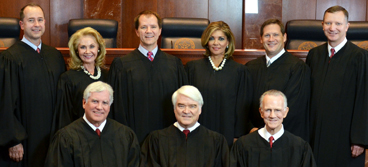© 2016 The Texas Lawbook.
By Janet Elliott
AUSTIN (June 21) – Texas courts lack jurisdiction over a Canadian company that sent a series of emails to Texas during a hotly contested stock purchase, the Texas Supreme Court ruled Friday.
A 7-2 majority said that electronic communications between the Canadian company and a Houston firm negotiating the sale of Colombian mineral assets were insufficient to confer Texas jurisdiction over the Canadian company. A strongly worded dissent accused the majority of ignoring the realities of complex business negotiations in a time where e-mail communication is the norm.
The $100 million dispute arose from a 2012 contest between a Houston firm and a Canadian company to buy some South American oil and gas operations. The suitors were ERG Resources, a now-bankrupt independent operator, and Canada’s Parex Resources, and the seller was Nabors Industries, the Houston operation of a Bermuda company.
Harriet O’Neill, who represents Parex, said the court’s opinion provides significant clarity in a complicated area of the law.

ERG alleges that Parex wrongly interfered in ERGs $45 million agreement to purchase the Colombian operations from Nabors, the sole shareholder of Class A shares of Ramshorn International, another Bermudian entity that owns the Colombian assets.(The entities involved in the case are so complex that the majority opinion includes a flow chart.)
ERG claims that Parex sent repeated emails to Nabors offering higher bids for the mineral interests during a critical period in March 2012 after ERG says it reached its deal with Nabors. Parex’s Bermuda affiliate ultimately acquired the shares for $72.6 million.

“This case is not about the volume of communications between Parex Canada and Nabors. What instead controls is the fact that the Colombian oil and gas assets that Parex Canada wanted to buy happened to be owned by a Bermudian company which had some Texas operations,” said Willett, adding:
“It is hard to fathom a more ‘fortuitous’ connection to Texas than the mere accident of a Bermudan firm, who turned out to own such Colombian assets, having some Houstonian executives involved in the sale.”
The court upheld a 2014 decision by Houston’s 14th Court of Appeals, which dismissed ERG’s claims against the Parex entities but ruled that ERG could pursue fraud claims against Ramshorn because Ramshorn’s president had made misrepresentations about the transaction in a Houston meeting.
Justice Eva Guzman wrote a concurring and dissenting opinion joined by Justice Jeffrey Boyd. The opinion begins with Black’s Law Dictionary definition of “fortuitous” and said Parex Canada’s contacts with Texas were anything but.
“Parex Canada knowingly and purposefully directed numerous emails, attachments, and phone calls into Texas, and thus, the alleged tort occurred in Texas,” Guzman said.

She said the majority’s conclusion creates “an especially troubling and dangerous development in our jurisprudence” and places Texas out of step with federal courts.
Guzman agreed with the majority that Texas courts have specific jurisdiction over Ramshorn.
© 2016 The Texas Lawbook. Content of The Texas Lawbook is controlled and protected by specific licensing agreements with our subscribers and under federal copyright laws. Any distribution of this content without the consent of The Texas Lawbook is prohibited.
If you see any inaccuracy in any article in The Texas Lawbook, please contact us. Our goal is content that is 100% true and accurate. Thank you.
